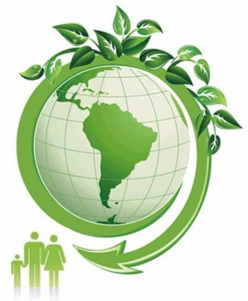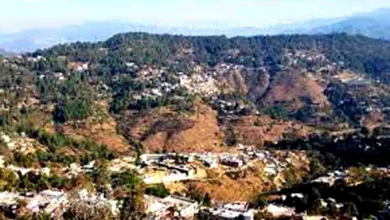GUEST COLUMN : Philosophy as a silent revolt against political mess

Tuesday, 24 May 2022 | Vir Singh | Dehradun
What matters the most for a nation to represent its strength and outstanding state of being? Responding to this question in the words of eco-philosopher Henryk Skolimowski, it is the intellectual and cultural strength. A conscious and awakened nation does not desperately run after economic progress. Economic growth cannot be realised without corresponding decline in the ecological status of a region. The process of economic growth is like a parasite on nature. Gross Domestic Product (GDP), a robust indicator of a nation’s economic development, is opposed to the life-enhancing indicators emanating from ecosystem functioning. The indicators of the ecosystem functioning are reflective of quality, sustainability and happy state of life.

Economy and politics in our contemporary world are one and the same entity—the two faces of a single coin, both being parasites on earth’s ecosystems. The economy perpetuates on the ecosystems, and economic growth is proportional to ecosystem shrinkage. On the other hand, ecology and philosophy are one and the same. They both are the basis of natural evolution and cultural progress. The intellectual and cultural strength, in fact, lie in a philosophy a culture nurtures and evolves within its ecosystems, the geographical settings. When a nation chooses to seek intellectual and cultural strength it chooses a path towards sustainability and happiness. Such a nation might be conventionally placed in the category of ‘undeveloped’ and even be referred to as ‘poor’, but it would be proud of the healthy ecosystems in its possession and be content about a happy future. Bhutan is one of the glaring examples of such nations. It is the Gross National Happiness (GNH), not the GDP that matters for the people of the Himalayan kingdom of Bhutan. With 98 per cent forest cover on its land, Suriname in South America can boast of a safe, secure, healthy, vibrant and happy future. Federal States of Micronesia has secured its 92 per cent forests and Seychelles 88 per cent. Protecting, maintaining and expanding forests are not just about possessing a natural resource for economic gains in future; it amounts to ensuring the sustenance of the phenomenon of life tied with photosynthesis, the central life-weaving, life-nurturing and life-sustaining phenomenon of the living planet. In photosynthesis, the solar energy flows into life through green plants, and the planet’s forests are the vivacious storehouses to channelise that energy into rest of the non-photosynthetic life—all animals and human race.
Most of the planet is deforested at the hands of politico-economic processes. Politics and economics in our contemporary world are led by each other. Insatiable quest for economic growth is managed by political system. And a political system sustains around the economic growth processes. Politics nourishes economics and vice versa.
Intellectual and cultural ends of life create philosophical and ecological pathways for a nation. Recalling the days of uprising in Poland, Skolimowski, the father of eco-philosophy writes, “We pursued the intellectual and cultural ends of life. We became aware of the true value of things. We ignored and discarded the petty concerns of ordinary life and tried to dwell in higher things.” It is the philosophy that puts balance on political system and on exploitative kind of economy in the ambit of capitalism. Being raised on the History of Remarkable Men in Antiquity by Plutarch, the East European people during uprising in the WWII days had no problem in identifying themselves with the higher ends of life — while trying to emulate some of their heroes of antiquity.
Cultural diversity is as diverse and rich as nature’s biodiversity. Every country broadly represents a peculiar culture. The specific geographical culture also represents a civilisation that has its own superb heroes and heroines, its legends, its wonderful stories, its unique history, and its own enduring impressions. A culture is nourished by its unique philosophy. It is the philosophy that sets unique values and evolutionary landmarks for a civilisation.
The violence-rearing cultures in certain geographical settings of the earth are those which rose amid a scenario lacking nature’s biodiversity, such as in the widespread deserts. History is replete with some of the condemnable characteristics of these cultures: inclined to violence, aggressive, merciless, parasite nature and uncivilised behaviour. Such cultures had no ecological roots and self-sufficient systems. The exploitative and ghastly political system they developed was branded by them as a “Faith”. Such a faith-cum-politics has no ecological roots and usurping others’ properties and ecologically developed productive areas are their hidden agenda. However, in our contemporary world, new political patterns revolving round ecological values, especially in Europe and in the West are emerging which are being welcomed as alternative political systems.
Sung in the Skolimowskian philosophy, the Indian philosophy is basically an eco-philosophy. Impregnated with evolutionary ideas, mature doctrines, enigmatic theories, life-enhancing karma, human dignity and reverence-for-nature attitude, the basic Indian philosophy – the eco-philosophy – offers all the solutions for resolving the contentious issues emanating from erroneous contemporary global politics. Culture is one of the best medium to heal a person, a society and a nation. Through the imaginative use of culture, we have been able to save our Indianness and our quintessential ethos from the imposed uniformity of the invaders’ regimes. We could be able to win over the tyrants and dispel their ecocidal and genocidal designs by means of our nature-caring, wisdom-generating and life-enhancing philosophy—that makes the axis of our culture and of our civilisation.
Our world has witnessed horrible and stressful times. Gradually strengthening rule of economy-oriented politics over ecology-oriented philosophy and gradual replacement of wisdom-oriented Dharma by life-eclipsing values emerging from a petty faith is the root cause of all sorts of the stresses and diseases prevailing in our contemporary world. Evolution of the political systems based on eco-philosophy will be pivotal for the world to protect the present and secure a happy, vibrant, sustainable and happy future.
(The author is emeritus professor of Environmental Science, GB Pant University of Agriculture and Technology. Views expressed are personal)






